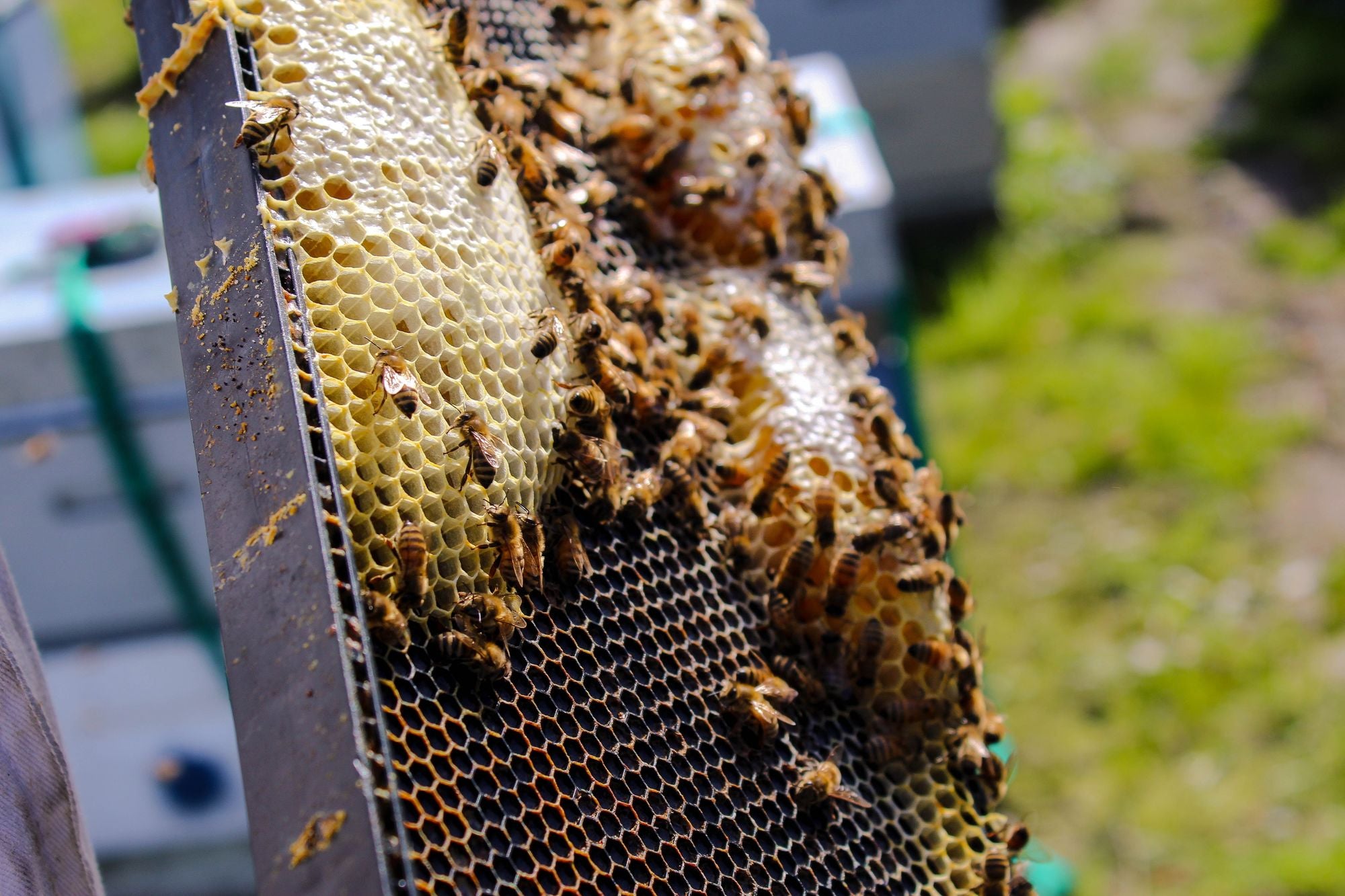Rookie beekeeping mistakes – and how to avoid them
New beekeepers face a steep learning curve. Beekeeping is part science, part art, and it can take some time to get your head around the process. Most newbies learn through a combination of research, support from experienced beekeepers, and by trial and error.
If you’re just starting your beekeeping journey, you will inevitably make mistakes. But you can avoid at least some of them if you do your research, be patient and prepared, and listen to those more experienced than you.
Here are the top five beekeeping mistakes we see – and how to avoid them.
1: Lack of preparation
Beekeeping is all about patience and organisation – so failing to properly prepare will come back to bite you (sometimes literally).
Preparation means doing your research, buying the right equipment, and registering your hives before you start – all hives in Australia must be legally registered so don’t forget this step. Get your registration sorted here.
It means suiting up properly every time you inspect your hive – make sure those zips are closed and that veil is in place before you open anything. It also means having the right equipment on hand, just in case you need it. Even if you think you won’t use your smoker, take it with you. It’s better to have it on hand and not need it than the other way around.
2: Not taking notes
Note taking isn’t exciting, but it’s an essential part of managing your hives. Taking consistent, thorough notes gives you invaluable information that you can use to make decisions about your bees. If you don’t take notes, or don’t note down the right things, you may need to inspect hives more often – another mistake.
Every time you open a hive, you should note down your observations about population, bee activity and mood, eggs, larvae, queen cells, and anything that seems unusual. Comparing notes from different checks helps you see trends and figure out what’s happening in your hives.
3: Inspecting your hives too often
As a new beekeeper, it’s easy to get carried away with hive inspections. You’re excited about your new hobby, and you naturally want to keep an eye on your bees. Inspecting your hive regularly is important, but over-inspecting can be a real problem.
Inspections are stressful for bees and disturb the conditions inside the hive, so you shouldn’t open a hive more than once a fortnight. Inspecting each hive once every two to four weeks should give you plenty of information to go on.
4: Harvesting – too much, too soon
Harvesting honey is one of the most exciting parts of beekeeping – but it’s important not to get carried away. Harvesting too much honey too early can lead to your colony starving over winter if they don’t have enough stores to get them through.
Generally, it’s not a good idea to take any honey from a colony in its first year. When your bees are stronger and you do harvest, make sure to leave enough honey to get your bees through the next winter. The amount varies based on your location and the temperature – the colder the winter, the more honey your bees will need.
5: Not keeping track of your queen
When a hive loses its queen, it’s not necessarily dramatic and obvious. In fact, usually your bees will continue to come and go as normal, honey will keep being made, and larvae will be fed. But without a queen, you won’t be getting any new workers and the population will go into a slow decline, which is difficult to reverse if left for too long. That’s why it’s essential to keep tabs on your queen.
The first signs of a lost queen include a lack of eggs, then a lack of larvae, and finally a total absence of brood. Make sure you check for eggs every time you inspect your hive, and you’re more likely to notice your lack of queen before it becomes a big problem.

